Vittoria Crisostomi, Carolina Giaimo, Ennio Nonni, Francesco Musco, Filippo Magni
The recent “Urbanpromo green” event welcomed several conferences: “The green that cares” in which nature was investigated as a filter to absorb the mutations of cities; “Climate proof urban planning” which investigated the urban planning tools prepared by some cities in a climate governance framework; “Landscapes in transition” in which devastated landscapes were investigated whose recovery requires, in the plan, the forecast of an economic cycle that will keep them alive. The sessions focused not only on innovative techniques of analysis and methods of treatment of current landscapes, but also on a new approach that makes greenery and open spaces a founding element of the city’s design, to be included in the balance sought by the plan for a efficient and comfortable city. The aim of the conference is therefore to give a unitary body to the various issues addressed and to include “Green” as an essential ingredient of projects for the country. In addition to organically consolidating what has been acquired, the topic expands concretely to research projects and ongoing experiments that anticipate or already use the “green that designs”. Each coordinator will make use of everything acquired in indications for green areas designed in cities at all scales, possibly supported by a particularly significant partner of the experience presented, and two concrete experiments that are moving in the direction identified will close the review
If you are interested to participate at the development of the program of this conference, you can leave us a comment or a suggestion in the following section “contributions”.
PROGRAMME
Introduces:
Vittoria Crisostomi, INU – URBIT
– Having noticed the stable changes in the planet, what cities are doing in their planning tools
Introduction to the case study:
Filippo Magni, Iuav University of Venezia
The experience of the Municipality of Bologna
Valentina Orioli, Department of Architecture University of Bologna, Deputy Mayor of the Municipality of Bologna
Introduction to the case study:
Francesco Musco, Iuav University of Venezia
Metropolitan City of Milano
Simona Collarini, Director of the Town Planning Department, Municipality of Milano
– Landscapes in transition, extreme conditions require new ways of organizing urban and territorial plans, innovative ideas for not extraordinary plans
Planning landscapes in transition: themes and problems
Francesco Rotondo, UNIVPM, INU Puglia
The reinvention of landscapes forces the innovation of the plan. Examples
Vittoria Crisostomi, INU – URBIT
– Greenery as an essential component of the city, the forfeiture of greenery in urban design
Everything is connected: urban forests and community welfare
Giorgio Vacchiano, State University of Milan
Urban planning and greenery: a new start for medium-sized Italian cities
Ennio Nonni, Architect, INU – URBIT
– “Beyond” the quantitative standard: from the performance of the greenery to the quality of settlement in the districts
The ecosystem project of urban greenery
Carolina Giaimo, INU – URBIT, Polytechnic University of Torino
Torino: from the forestation of Parco Piemonte to the Strategic Green Plan
Simone Mangili, Environment and Green Department, City of Torino
– Invited: a few steps forward with “the green that plans”
A green organisational model to give continuity and cohesion to the city of Roma
Luca Montuori, Councillor for City Planning of Roma Capitale
The Appian Way Park from archaeological object to place of the city and culture
Simone Quilici, Director of the Appia Antica Archaeological Park
Green as a material for urban resilience. Experiences in Europe
Grazia Brunetta, Project manager Responsible Risk Resilience Centre – R3C, Polytechnic of
Conclusion of the works:
Vittoria Crisostomi, INU – URBIT
Curators and speakers:

Vittoria Crisostomi
INU - URBIT
Former Director of the General Planning Department and then of the Urban Redevelopment Department at the PAU in Rome. A research doctor, she is contract professor at the Laboratory of Urban Design University "Roma3", previously of the course "Fundamentals of Urban Planning" at La Sapienza University.

Carolina Giaimo
Polytechnic of Torino
Architect, Associate Professor of Urban Planning at the Dist/Politecnico and University of Turin. Member of the Governing Council and National Executive Council of the INU, Member of the Board of Urbit, Coordinator of the Community "Research and experimentation new standards", Vice-President of the INU Piemonte and VdA Section, Member of the Scientific Editorial Board of Urban Planning.

Ennio Nonni
INU - URBIT
Urban planner, architect and designer, former manager of the municipality of Faenza, where he designed and directed two new contemporary art collections, he is the author of historical and urban planning publications. In the planning he has introduced the application of incentives for green building, bio-urbanism, greenery and urban art.

Francesco Musco
IUAV University of Venezia
Associate Professor of Urban Planning and Technique at the Department of Project Cultures of the Iuav University of Venezia. Consultant to numerous public and private bodies in Italy and abroad in the field of urban planning, for the definition of environmental, territorial and local development policies.
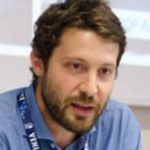
Filippo Magni
IUAV University of Venezia
Urban planner, PhD in planning and public policies for the territory at the Iuav University of Venezia. He is currently a researcher (RTDa) in Urban Planning and Technique and lecturer in the basic courses of Urban Planning and Spatial Planning and Design for Climate Change.
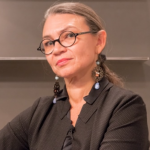
Simona Collarini
Municipality of Milano
Architect, Manager of the General Urban Planning Department of the Municipality of Milano. PhD in Territorial and Urban Planning, she is an expert at the Department of Territorial Sciences of the Politecnico di Milano where she carries out teaching and research activities.
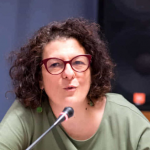
Valentina Orioli
Municipality of Bologna
Valentina Orioli, Councillor for Urban Planning and Environment of the Municipality of Bologna. She is a PhD student, Associate Professor of Technology and Urban Planning at the Department of Architecture of the University of Bologna, where she is in charge of the Operating Unit of Cesena Headquarters. He is Vice President of URBAN@IT, the National Centre for Urban Policy Studies, established in Bologna in December 2014.
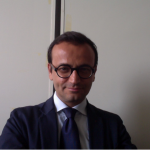
Francesco Rotondo
UNIVPM
Professor of Urban Planning, he carries out research on the themes of urban regeneration and common assets, on the sustainability of urban development. Former Director of Urban Planning of the Municipality of Taranto, member of the technical secretariat of the DRAG and responsible for integrated projects of the PPTR of Puglia. He is president of the INU Puglia section.
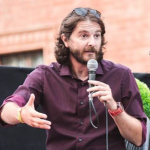
Giorgio Vacchiano
State University of Milano
Researcher in forest management and planning at the State University of Milan, he studies simulation models in support of sustainable forest management in European temperate forests. He is involved in the teaching and communication of science, has numerous scientific publications. He is a member of the Italian Society of Silviculture and Forest Ecology (SISEF).

Simone Mangili
City of Torino
Staff of the Mayor and Councillor for the Environment and Public Green of the City of Torino, in this capacity is responsible for the Strategic Green Plan. Previously he was responsible at Torino Internazionale for managing the development of the Third Strategic Plan "Torino Metropoli 2025".
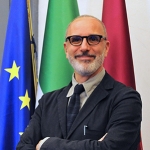
Luca Montuori
Councillor for City Planning of Roma Capitale
Architect, associate professor in architectural and urban design (Department of Architecture of Roma Tre). He founded 2tr architettura with Riccardo Petrachi in 2001. Member of the scientific committee of the House of Architecture in Rome from 2006 to 2015. He currently holds the position of Councillor for Urban Planning of the Municipality of Rome.
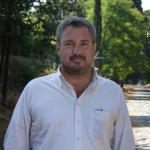
Simone Quilici
Director of the Appia Antica Archaeological Park
Simone Quilici, architect and landscape architect, has been elected Director of the Archaeological Park of the Appian Way following international public selection. Previously he was involved for a long time in the recovery of cultural and historical-religious routes and itineraries in the Lazio Region. He has been part of several inter-institutional working groups for the enhancement of the Via Francigena and the Via Appia.

Grazia Brunetta
Polytechnic of Torino
Full Professor of Urban Planning at DIST - Polytechnic of Torino and Director of the Interdepartmental Responsible Risk Resilience Centre - R3C. Since 2015 he has been coordinating national and international research groups on the theme of resilience in territorial governance.














Contributions